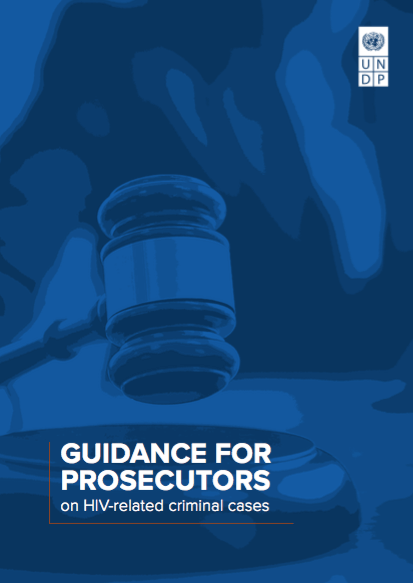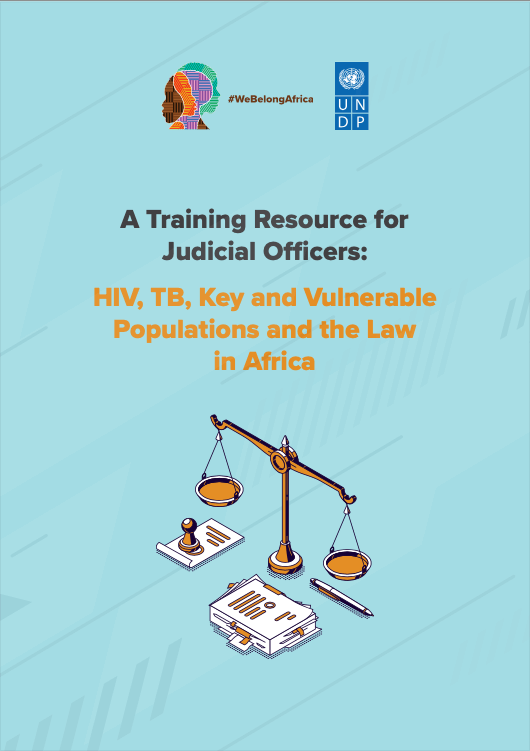Guidance for prosecutors on HIV-related criminal cases
This Guidance is addressed specifically to prosecutors, given the essential role they play in stopping the misuse of criminal law by discharging their professional obligations with full regard to science, human rights and the public interest. In many jurisdictions around the world, people living with HIV face criminal prosecution if accused of transmitting HIV, exposing another person to a potential or perceived risk of HIV infection, or not disclosing their HIV-positive status. Usage of the criminal law in such ways is commonly referred to as “HIV criminalisation.” There is mounting evidence and concern that an overly broad use of the criminal law, and of similarly coercive and punitive measures in relation to HIV and other infectious diseases, is not effective public health policy and in fact can do more harm than good.
This guidance document presents 10 key principles that should assist prosecutors in handling a prosecution – or potential prosecution – involving an allegation of HIV non-disclosure, exposure or transmission. Each principle is accompanied by a more detailed commentary examining the specific application of the principle by prosecutors in the course of their handling of a potential or ongoing prosecution. It is also intended as a resource for lawmakers who legislate, judges who interpret laws and adjudicate these cases, people living with HIV who bear the brunt of HIV criminalisation, and the public defenders and advocates who represent those charged under these laws.
UNDP, on behalf of the United Nations Joint Programme on HIV/AIDS (UNAIDS), convened an independent Global Commission on HIV and the Law with a mandate to produce evidence-informed recommendations to promote effective responses to the HIV epidemic. The Global Commission on HIV and the Law called on countries to repeal punitive laws, policies and practices and enact protective ones to promote public health and human rights for effective HIV responses.

 Resolution N=N
Resolution N=N
 Fifth meeting of the EECA Judges’ Forum
Fifth meeting of the EECA Judges’ Forum
 A Training Resource for Judicial Officers: HIV, TB, Key and Vulnerable Populations and the Law in Africa
A Training Resource for Judicial Officers: HIV, TB, Key and Vulnerable Populations and the Law in Africa
 Newsletter No 4
Newsletter No 4